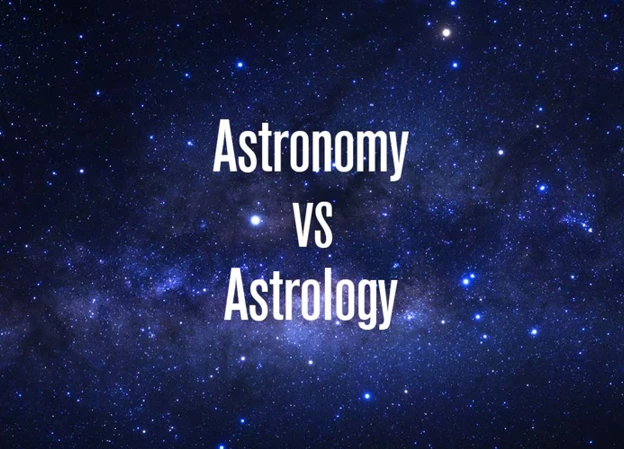Astronomy and Astrology – An Intriguing Interplay
The delicate dance between the cosmos and human destiny has long sparked fascination and wonder. Astronomy, the scientific study of celestial objects and phenomena, and astrology, the ancient art of interpreting celestial movements to gain insight into human affairs, have a unique and intricate relationship. While astronomy observes and unravels the mysteries of the universe, astrology seeks to uncover meaning and patterns in the celestial movements to understand their influence on individuals and society. This article delves into the historical connection between these two fields, examines how astronomy influences astrology, explores their modern relationship, discusses debates and controversies surrounding astrology, and speculates on the potential future synergy between astronomy and astrology. Prepare to embark on an enlightening journey through time and space as we explore the influence of astronomy on astrology.
Astronomy and Astrology – An Overview
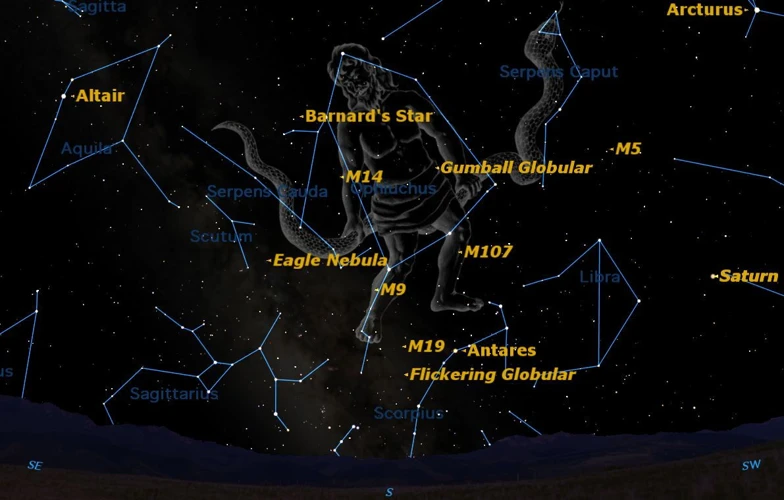
Astronomy and astrology, two closely intertwined disciplines, have captivated the human imagination since ancient times. While they are distinct fields of study, their connection lies in their shared focus on the celestial realm and its profound impact on our lives. Astronomy delves into the scientific exploration of the universe, encompassing the study of stars, planets, galaxies, and other celestial objects. Scientists use powerful telescopes and advanced technology to observe, measure, and understand the vastness of the cosmos. It seeks to unravel the mysteries of the universe, shedding light on phenomena such as black holes, supernovae, and cosmic radiation. On the other hand, astrology is rooted in the interpretation of celestial movements and their influence on human affairs. Ancient civilizations believed that the position of celestial bodies at the time of a person’s birth could offer insights into their personality traits, relationships, and even future events. Astrologers assign significance to the zodiac, a celestial belt divided into twelve equal parts, each representing a distinct astrological sign. These signs are associated with certain traits and characteristics that are believed to shape an individual’s life path and interactions with the world. While astronomy adopts a scientific approach to unravel the secrets of the cosmos, astrology explores the intricate interplay between celestial movements and the human experience. By studying the connection between astrology and zodiac signs, one can understand the intricate correlation between the positions of celestial bodies and the traits associated with each sign. It is important to note, however, that astrology’s legitimacy as a scientific practice has been a subject of debate and skepticism throughout history. Despite this, the enduring fascination with astrology continues to bring to light the profound connection between the celestial realm and human existence.
1. Astronomy: The Study of the Universe
Astronomy, often referred to as the study of the universe, is a vast and captivating field that encompasses the exploration and understanding of celestial objects and phenomena. Scientists and astronomers dedicate their lives to unraveling the mysteries of the cosmos, using advanced technology and instruments to observe and analyze the stars, planets, galaxies, and other celestial bodies. They study the properties and behavior of these objects, seeking to comprehend their formation, evolution, and interactions with one another. Through meticulous observations, meticulous calculations, and rigorous scientific methods, astronomers have made groundbreaking discoveries, such as the existence of exoplanets, the nature of black holes, and the cosmic microwave background radiation. They employ various tools, including telescopes, spectrographs, and space probes, to delve deep into the vastness of the universe. The field of astronomy offers a fascinating glimpse into the splendor and magnitude of the cosmos, inspiring awe and wonder in those who seek to comprehend the vastness of our existence. To delve deeper into the connection between astronomy and the forgotten zodiac sign of Ophiuchus, consider exploring the intrigues and implications of Ophiuchus as part of the astrological predictions.
2. Astrology: The Interpretation of Celestial Movements
Astrology: The art of interpreting celestial movements holds a prominent place in human history and culture. Astrologers believe that the positions and alignments of celestial bodies, including the Sun, Moon, planets, and stars, can provide valuable insights into various aspects of human life. The interpretation of these celestial movements forms the foundation of astrology. It involves studying astrological charts, which map out the positions of celestial bodies at specific times and locations. These charts are used to generate horoscopes, personalized readings that offer insights into an individual’s personality traits, relationships, and future events. Astrologers assign significance to the zodiac signs, which are twelve equal divisions of the celestial belt, each associated with distinct characteristics and energies. By analyzing the unique combination of planetary positions and their interactions, astrologers make predictions and provide guidance on various aspects of life. While astrology has faced skepticism and criticism from the scientific community, its enduring popularity and cultural significance cannot be ignored. To delve deeper into the fascinating realm of astrology, one can explore the intriguing concept of astrological predictions for Ophiuchus, a constellation that lies along the ecliptic but is often excluded from conventional zodiac systems. Understanding the intricacies of celestial movements and their interpretation is key to appreciating the rich tradition and enduring allure of astrology.
The Historical Connection
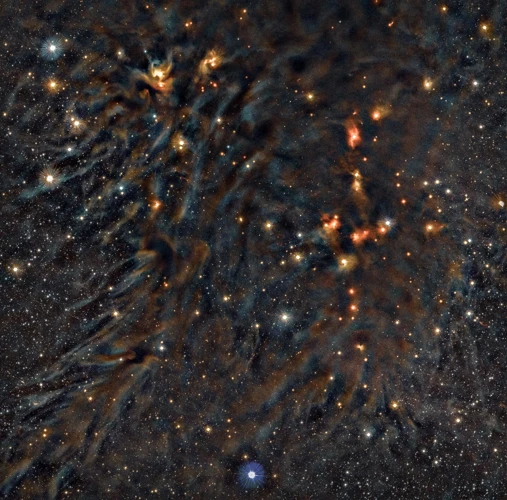
The historical connection between astronomy and astrology dates back thousands of years, with ancient civilizations recognizing the profound influence of celestial bodies on earthly affairs. In ancient times, astronomy and astrology were intertwined, forming an integral part of cultural, religious, and societal practices. Early civilizations, such as the Egyptians, Mesopotamians, and Greeks, closely observed the movements of the sun, moon, stars, and planets, attributing divine significance to their positions and alignments.
1. Ancient Observations and Astrological Interpretations
In ancient Egypt, the alignment of celestial bodies was believed to hold immense meaning for the reigning Pharaoh and the fate of the kingdom. The Egyptians developed elaborate systems of measuring time, navigating by the stars, and predicting the annual flooding of the Nile River, all based on their astronomical observations. Similarly, the Mesopotamians studied the heavens with great precision, connecting celestial events with earthly occurrences. They believed that the position of celestial bodies at a person’s birth determined their fate, leading to the development of natal astrology.
2. Contributions of Famous Astronomers to Astrology
Throughout history, renowned astronomers have made significant contributions to the field of astrology. One notable example is Claudius Ptolemy, a Greco-Roman astronomer, geographer, and mathematician, who authored the influential work, the “Tetrabiblos.” Ptolemy’s treatise explored the connection between celestial positions and human personality traits, establishing the foundation for horoscopic astrology. Another significant figure is Johannes Kepler, a German astronomer, who formulated the laws of planetary motion. Kepler’s work provided a scientific basis for astrological predictions, linking the movements of celestial bodies to potential events on Earth.
The historical connection between astronomy and astrology highlights humanity’s quest to understand the cosmos and its influence on our lives. While the relationship between the two fields has evolved over time, ancient observations and astrological interpretations laid the groundwork for the profound connection that persists today.
1. Ancient Observations and Astrological Interpretations
In ancient times, the night sky was an awe-inspiring canvas that sparked curiosity and contemplation among civilizations. As early as 3000 BCE, ancient cultures began making meticulous observations of the stars and celestial bodies, noting their movements and patterns. These observations laid the foundation for the development of astrology, as they believed that celestial events held significance for human affairs. Ancient astronomers meticulously recorded the positions and alignments of the sun, moon, planets, and stars, carefully noting their association with worldly events and the lives of individuals. They began to develop astrological interpretations based on these celestial observations, attributing specific meanings and qualities to different constellations and zodiac signs. For example, the Babylonians associated the constellation of Leo with leadership and royalty, while Capricorn was associated with ambition and hard work. These early observations and interpretations formed the basis for the art of astrology, shaping the belief that the positions and movements of celestial bodies could offer insights into the human condition.
2. Contributions of Famous Astronomers to Astrology
Throughout history, renowned astronomers have made significant contributions to astrology, bridging the gap between scientific knowledge and astrological interpretations. Their discoveries and observations have provided valuable insights into the influence of celestial bodies on human affairs. Here are some notable contributions:
1. Nicolaus Copernicus: This Polish astronomer revolutionized our understanding of the solar system with his heliocentric theory, which stated that the Sun is at the center, and the planets, including Earth, revolve around it. Copernicus’ work challenged the geocentric model that had dominated astrology for centuries, paving the way for a more accurate interpretation of celestial movements.
2. Johannes Kepler: Kepler’s laws of planetary motion laid the foundation for modern astronomy and had implications for astrology as well. His discovery of the elliptical orbits of planets around the Sun provided astrologers with more accurate data for making predictions based on planetary positions. Kepler’s work also emphasized the importance of precise mathematical calculations in astrology.
3. Tycho Brahe: Brahe’s meticulous observations of the night sky and his detailed records of planetary positions were invaluable to both astronomy and astrology. His accurate data allowed for more precise astrological predictions and a deeper understanding of the influences of celestial bodies on human events.
4. Galileo Galilei: Galileo’s telescopic observations and his support for Copernican heliocentrism marked a significant milestone in the history of both astronomy and astrology. His discoveries, such as the phases of Venus and the moons of Jupiter, challenged the prevailing beliefs of the time and expanded our knowledge of the solar system. These findings also influenced astrological interpretations, sparking new perspectives on the influences of these celestial objects.
5. Isaac Newton: While primarily known for his laws of motion and universal gravitation, Newton’s work in celestial mechanics had implications for astrology as well. His mathematical explanations of planetary motion provided astrologers with a more solid foundation for interpreting the influences of planets and their interactions on human life.
These famous astronomers not only advanced our understanding of the universe but also contributed to the development and refinement of astrological practices. Their observations, theories, and mathematical calculations have shaped astrological interpretations and offered a scientific perspective within the realm of celestial influence on human affairs.
How Astronomy Influences Astrology
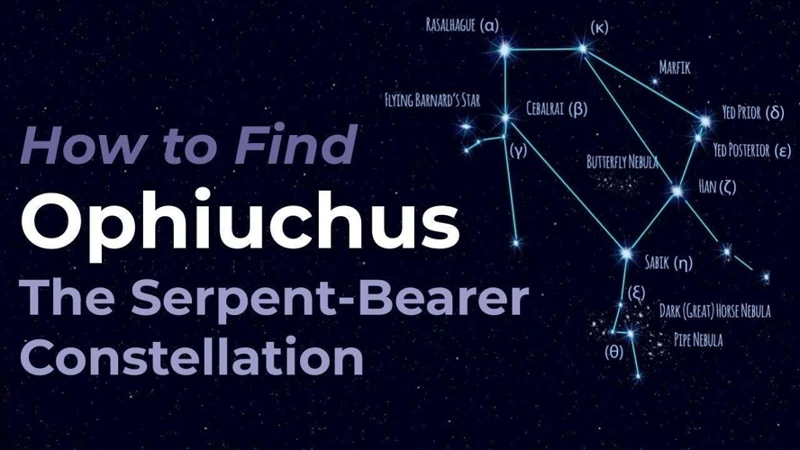
1. Celestial Bodies and Zodiac Signs: Astronomy plays a crucial role in shaping the foundation of astrology. The positioning and movements of celestial bodies, such as the sun, moon, and planets, directly influence astrological interpretations. Astrologers and astronomers both rely on precise astronomical calculations to determine the exact location of these celestial bodies at any given time. This information is used to create birth charts, which map the positions of planets and other celestial bodies at the moment of an individual’s birth. These birth charts serve as the basis for astrological readings, enabling astrologers to make predictions and offer insights into various aspects of a person’s life.
2. Astronomical Events and Astrological Significance: Astronomy also influences astrology through the study of significant astronomical events and their astrological implications. Events like eclipses, planetary alignments, and comets are regarded as highly significant in astrology. Astronomers observe and predict these phenomena using rigorous scientific methods. Astrologers, in turn, interpret these events in the context of astrological symbolism and assign meaning to them. For example, a solar eclipse might be seen as a powerful moment for transformation or new beginnings in astrological terms. By studying astronomical events, astrologers gain valuable insights into the energy shifts and potential influences on individuals and the collective consciousness.
3. Interdisciplinary Collaborations: The intricate relationship between astronomy and astrology has also led to collaborative efforts between scientists and astrologers. While the scientific community often emphasizes the distinction between the two fields, there have been instances of astronomers and astrologers working together to explore common interests. These collaborations aim to bridge the gap between the scientific and esoteric perspectives, fostering mutual understanding and exploration of the celestial realm. By combining scientific knowledge and astrological insights, researchers hope to uncover new discoveries and connections that could deepen our understanding of both disciplines.
Astronomy significantly influences astrology through the study of celestial bodies and their impact on astrological interpretations. The precise positioning of planets, sun, moon, and other celestial bodies forms the basis of birth charts used by astrologers. Additionally, astronomical events and their astrological significance provide further insights into cosmic influences on individuals and society. The potential for interdisciplinary collaborations between astronomers and astrologers brings promising prospects for expanding our understanding of the celestial world and its influence on human existence.
1. Celestial Bodies and Zodiac Signs
The relationship between celestial bodies and zodiac signs is a fundamental aspect of astrology. Each zodiac sign is associated with specific celestial bodies, such as planets and luminaries, that are believed to have a profound influence on individual traits and characteristics. The Zodiac consists of twelve equal parts along the ecliptic, representing the path the Sun appears to follow throughout the year. Each zodiac sign is defined by the specific constellation it corresponds to at the time of a person’s birth. For example, Aries is associated with the constellation of the same name, which is linked to assertiveness and leadership qualities. Each zodiac sign is further influenced by ruling planets. Aries, for instance, is ruled by Mars, representing qualities of energy and passion. The position and alignment of these celestial bodies during one’s birth, along with their subsequent movements, are believed to shape an individual’s personality, behavior, and potential future events. The intricate interplay between celestial bodies and zodiac signs serves as the foundation for astrological interpretations and predictions.
2. Astronomical Events and Astrological Significance
Astronomical events have long been revered for their astrological significance. The movements and alignments of celestial bodies have been studied and interpreted by astrologers to gain insights into the impact on human lives. Let’s explore some of the most well-known astronomical events and their astrological implications:
1. Solar Eclipses: Solar eclipses occur when the Moon passes between the Earth and the Sun, temporarily blocking the Sun’s light. In astrology, solar eclipses are believed to be moments of cosmic recalibration and new beginnings. They are often associated with powerful energy shifts and can signify significant life changes or shifts in personal growth.
2. Lunar Eclipses: Lunar eclipses occur when the Earth stands between the Sun and the Moon, casting a shadow on the lunar surface. Astrologically, lunar eclipses are considered moments of emotional intensity and release. They shine light on hidden emotions, allowing for transformation and closure.
3. Planetary Alignments: When multiple planets align in the night sky, astrologers believe it signifies a potent and impactful period. These alignments can create energetic dynamics that influence global events, societal changes, and personal transformations. Each alignment carries its unique astrological meaning and can bring about shifts in consciousness and personal growth.
4. Meteor Showers: Meteor showers occur when the Earth passes through debris left by comets or asteroids. These cosmic displays are considered celestial blessings in astrology. Many believe that making wishes during meteor showers amplifies their manifestation power.
5. Equinoxes and Solstices: Equinoxes and solstices mark the changing seasons and are vital astronomical events. They represent a delicate balance between light and darkness, symbolizing themes of renewal, transformation, and introspection in astrology. These events often serve as potent times for setting intentions and aligning oneself with cosmic rhythms.
It is important to note that while astrology attributes significance to these events, scientific understanding emphasizes their astronomical nature rather than any direct influence on human lives. Nevertheless, the profound symbolism and cultural importance associated with these events have captivated minds for centuries, offering a gateway to exploring the interrelation between the celestial and the terrestrial realms.
The Modern Relationship
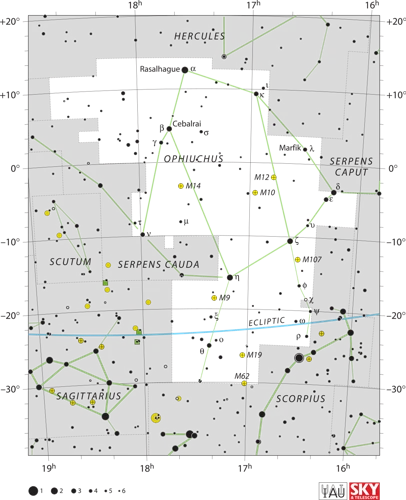
In today’s interconnected world, the relationship between astronomy and astrology continues to evolve with the advancements of technology and scientific knowledge. While astrology retains its roots in ancient practices, it has also adapted to embrace modern developments. Scientific advances have provided astronomers with a deeper understanding of the celestial realm, allowing for more precise measurements and calculations. These advancements have, in turn, influenced astrology by providing astrologers with more accurate data to interpret and analyze. Astrologers now have access to detailed astronomical charts and ephemerides, which provide precise information about the positions of celestial bodies at any given time. Additionally, astrological software has streamlined the interpretation process, allowing astrologers to generate birth charts and make astrological predictions more efficiently. Such software takes into account intricate calculations and intricate correlations between planetary movements and astrological significance. The integration of modern technology has made astrology more accessible to the public, allowing individuals to obtain personalized horoscopes and explore astrological insights with ease. While scientific skepticism towards astrology still exists, many astronomers and scientists appreciate astrology as a cultural phenomenon and recognize its fascination with the celestial realm. By bridging the gap between scientific discovery and astrological interpretation, the modern relationship between astronomy and astrology continues to evolve, offering new perspectives and opportunities for exploration.
1. Scientific Advances and Astrology
Scientific advances in fields such as astronomy and physics have significantly influenced the practice of astrology. Astrology has evolved alongside scientific discoveries, adapting and incorporating new knowledge into its interpretations. With the advancements in technology, astronomers have been able to gather more accurate data about the positions and movements of celestial bodies. This detailed information has contributed to refining astrological calculations and predictions. Additionally, the development of computerized astrology software has facilitated more precise calculations and generated comprehensive birth charts. These charts provide detailed information about an individual’s horoscope and can even include lesser-known astronomical phenomena, such as the position of the newly recognized Ophiuchus constellation. Scientific breakthroughs in fields like psychology and neuroscience have prompted astrologers to explore the psychological and cognitive aspects of astrology, expanding its scope beyond traditional interpretations. Despite the ongoing debate about the scientific validity of astrology, the integration of scientific advancements has undoubtedly enhanced its practice, allowing for more accurate and nuanced insights into the influence of celestial bodies on human lives.
2. Astrological Software and Astronomy
Astrological software and astronomy have become unlikely partners in the modern era, bringing together ancient wisdom with technological advancements. With the advent of computers and software, astrologers now have powerful tools at their disposal to calculate and interpret celestial positions with remarkable precision. Astrological software allows astrologers to generate birth charts, also known as horoscopes, which map the positions of celestial bodies at the time of an individual’s birth. These charts provide valuable insights into personality traits, potential life events, and overall life themes based on the astrological sign and planetary alignments. Modern software has also made it easier for astrologers to track the positions and movements of celestial bodies accurately, enabling them to make more accurate predictions and interpretations.
On the other hand, astronomy continues to provide a scientific understanding of the celestial phenomena studied by both astronomers and astrologers. Astronomical observations allow scientists to gather data on planetary motions, eclipses, and other cosmic events that may have astrological significance. While astrology focuses on the interpretive aspects, astronomy adds a factual and empirical perspective. It plays a vital role in validating the accuracy of astrological claims by examining the celestial positions and their relationship with real-world events. The use of advanced telescopes and satellites in astronomy has significantly expanded our knowledge of the universe, allowing for more precise calculations and observations that can be used in astrological analysis.
Despite the collaborative potential between astrology and astronomy, there exist debates and controversies surrounding their relationship. Some astronomers argue that astrology lacks scientific validity and dismiss it as pseudoscience. They believe that the interpretations drawn from celestial movements are rooted in subjective beliefs rather than verifiable evidence. However, proponents of astrology maintain that it offers a unique perspective on human existence and can provide valuable insights when approached with an open mind. The ongoing dialogue and exchange of ideas between astronomers and astrologers continue to shape both fields and encourage further research into understanding the profound connections between celestial bodies and human affairs.
Debates and Controversies
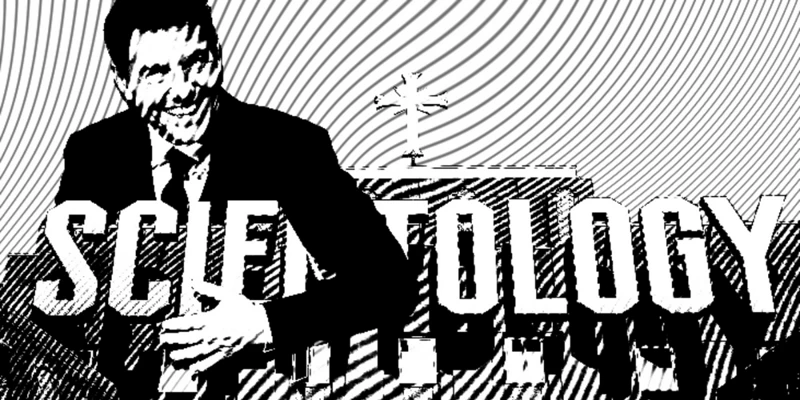
The relationship between astronomy and astrology has not been without its fair share of debates and controversies. Scientific skepticism towards astrology has been a prominent viewpoint among many scientists and researchers. They argue that astrology lacks empirical evidence and does not adhere to the principles of the scientific method. Skeptics question the validity of astrological predictions and argue that the perceived connections between celestial movements and human affairs are merely coincidental. They assert that astrology’s interpretations are often vague and open to subjective interpretation, making it difficult to test and validate astrological claims.
Astrologers, on the other hand, vehemently defend their craft and respond to criticism with various arguments. They point out that astrology is an ancient art grounded in centuries of observation and interpretation. Astrologers argue that despite the lack of empirical evidence, astrology provides individuals with a valuable tool for self-reflection, personal growth, and understanding their place in the universe. They maintain that astrology’s power lies in its ability to offer guidance and insight into the complexities of human nature and the interplay between individuals and the cosmos.
The debates and controversies surrounding astrology and its legitimacy continue to persist. While some scientists dismiss astrology as pseudoscience, others recognize the psychological and cultural significance it holds for many individuals. Regardless of one’s stance on the matter, the ongoing discourse serves as a reminder of the complex relationship between science, belief systems, and the enduring appeal of astrology.
1. Scientific Skepticism Towards Astrology
Scientific skepticism towards astrology has been a prominent aspect of the field’s relationship with the scientific community. Critics argue that astrology lacks empirical evidence and fails to meet the rigorous standards of the scientific method. They point out that astrological predictions often rely on subjective interpretations and generalizations that can be applied to anyone. Skeptics also highlight the lack of consistency in astrological predictions and question the validity of astrological charts and horoscopes. Additionally, the concept of astrology’s predictive ability conflicts with established scientific principles, such as the laws of physics and causality. Critics argue that correlation does not imply causation and that any perceived connections between celestial movements and human affairs are merely coincidental. While astrology has endured skepticism from the scientific community, proponents argue that it serves various psychological and personal growth purposes. It offers individuals a sense of guidance, hope, and self-reflection, providing comfort in uncertain times. Astrology continues to evolve, adapting to scientific advancements and incorporating new astrological concepts, such as the controversial addition of Ophiuchus to the zodiac. The debate between scientific skepticism and astrological belief remains ongoing, highlighting the complex and multifaceted nature of this ancient practice.
2. Astrologers’ Response to Criticism
In the face of skepticism and criticism, astrologers have offered their own perspective on the ancient practice. While astrology may not adhere to traditional scientific methodologies, proponents argue that its value lies in its ability to provide guidance, introspection, and a sense of meaning in a chaotic world. Astrologers acknowledge that astrology is not meant to be predictive in a literal sense, but rather offers a symbolic language to interpret the energies and patterns at play in the universe. They maintain that astrology helps individuals deepen their understanding of themselves and their relationships, providing a framework for self-reflection, personal growth, and decision-making. Responding to criticism, astrologers often highlight the uniqueness and specificities of each person’s birth chart, which takes into account the precise positions of celestial bodies at the time of birth. They argue that a general horoscope or sun sign interpretation does not do justice to the complexity and intricacies of astrology. Astrology is viewed as a tool for self-awareness and contextualizing one’s experiences in a broader cosmic perspective. By exploring the individual nuances of an astrological birth chart, astrologers assert that it offers a more personalized and insightful approach to understanding oneself and navigating life’s challenges. While critics raise valid concerns about astrology’s lack of scientific basis, astrologers stand firm in their belief that astrology serves as a valuable resource for self-exploration and introspection. They argue that dismissing astrology solely on scientific grounds overlooks its potential as a psychological and spiritual tool. Ultimately, the response from astrologers to criticism reflects their dedication to preserving and promoting the age-old practice, emphasizing its subjective value and meaningful impact on those who choose to engage with it.
The Future of the Connection
As we peer into the future, the relationship between astronomy and astrology holds the potential for exciting new developments and collaborations. The realms of science and spirituality are not as disparate as they are often perceived, and there are opportunities for greater synergy between these fields.
1. Potential Collaborations and Collaborative Research: Bridging the gap between astronomy and astrology could lead to intriguing collaborations and research opportunities. Scientists and astrologers could join forces to investigate the impact of celestial events on human experiences, using quantitative data analysis and astrological insights. This collaborative approach has the potential to deepen our understanding of the universe and its connections to human life.
2. Astrology and Space Exploration: As we venture further into space exploration, astrology may gain new perspectives and insights. The exploration of other planets and celestial bodies could provide valuable data and observations that astrologers could incorporate into their interpretations. The study of how these newfound cosmic factors influence human lives could expand astrology’s understanding and bring it into the realm of scientific exploration.
It is important to note that while collaborations between astronomy and astrology may hold promise, they must be approached with caution and scientific rigor. Any potential future endeavors should follow the principles of the scientific method and adhere to the standards of peer-reviewed research to ensure credibility and validity.
As technology continues to advance and our understanding of the universe deepens, the connection between astronomy and astrology will likely evolve and transform. Whether these fields merge, coexist, or maintain their distinct identities, their interplay will continue to captivate and intrigue humanity as we navigate the mysteries of the cosmos and seek greater insights into our place in the universe.
1. Potential Collaborations and Collaborative Research
The potential for collaborations and collaborative research between astronomy and astrology holds tremendous promise. While the two disciplines have often been viewed as separate entities, opportunities for synergy and mutual exploration exist. By combining their unique perspectives and methodologies, astronomers and astrologers can deepen their understanding of the cosmos and its influence on human life. Collaborative efforts could involve astronomers offering their expertise in observing and interpreting celestial phenomena to shed light on astrological theories and predictions. Similarly, astrologers can contribute their insights and observations to help astronomers uncover new patterns or phenomena that may have been overlooked. This partnership could lead to groundbreaking discoveries and advance our knowledge of both fields. Interdisciplinary research initiatives can bridge the gaps between science and spirituality, fostering a more comprehensive understanding of our place in the universe. By working together, astronomers and astrologers can pave the way for a new era of exploration and discovery, enhancing our understanding of the cosmos and its profound influence on our lives.
2. Astrology and Space Exploration
Astrology has long been associated with the interpretation of celestial movements and their impact on human lives. However, in recent times, there has been a growing connection between astrology and space exploration. As scientists delve deeper into the mysteries of the universe, astrologers have started incorporating astronomical discoveries into their practice.
One significant aspect of this interplay revolves around the inclusion of newly discovered celestial bodies in astrological charts. For instance, the 13th constellation, Ophiuchus, has gained attention in recent years. Ophiuchus represents a serpent-bearer and is often mentioned as the “forgotten zodiac” due to its exclusion from the traditional twelve zodiac signs. The addition of Ophiuchus to astrological interpretations adds a new dynamic to birth charts and astrological predictions. To learn more about the astrological implications of Ophiuchus, you can visit the article on Ophiuchus and its significance in astrology.
Space exploration missions have also brought new perspectives to astrology. The fascinating images and data captured by telescopes and space probes have deepened our understanding of the cosmos. This newfound knowledge has influenced astrologers in their interpretations of celestial events and their impact on our lives. The discovery of exoplanets, for example, has sparked discussions about the influence of these distant worlds on our astrological profiles.
It is important to note that while astrology and space exploration share some overlap, they are still distinct in their goals and methodologies. Space exploration aims to uncover scientific facts about the universe, while astrology focuses on interpreting celestial movements and their influence on human behavior and destiny.
The connection between astrology and space exploration showcases the evolving nature of both fields. As our understanding of the universe expands, astrologers continue to integrate new astronomical discoveries into their practice. The exploration of celestial bodies, the inclusion of Ophiuchus in astrological charts, and the influence of space exploration on astrological interpretations demonstrate the ongoing dialogue between astronomy and astrology. This ongoing relationship ensures that the intriguing interplay between the cosmos and human destiny will continue to inspire and captivate us in the years to come.
Conclusion
In conclusion, the influence of astronomy on astrology is a captivating subject that has intrigued humanity for centuries. The interplay between these two fields offers a fascinating glimpse into the relationship between the cosmos and human affairs. Astronomy, with its scientific exploration of the universe, provides us with a deeper understanding of celestial objects and their behaviors. This knowledge forms the foundation for astrology, which interprets the movements of these celestial bodies to gain insights into human behavior, personalities, and possible future events.
Throughout history, there have been significant contributions from famous astronomers who have enriched our understanding of astrology. They have made advancements in observing and measuring the universe, thereby expanding our knowledge of the cosmos and further enhancing astrological interpretations. Celestial bodies and zodiac signs are intricately linked, with each sign associated with specific characteristics and traits. Astronomical events, such as planetary alignments and eclipses, also hold astrological significance, affecting the predictions made by astrologers.
In the modern era, scientific advancements have enabled a more in-depth exploration of the cosmos, challenging the validity of astrological practices. Skepticism from the scientific community has led to debates and controversies surrounding astrology. Nevertheless, astrologers respond by maintaining the importance of astrology as a tool for self-reflection, personal growth, and better understanding interpersonal dynamics. Moreover, advancements in technology have facilitated the development of astrological software that incorporates astronomical data, providing more accurate and detailed interpretations.
Looking to the future, there is potential for collaboration between astronomers and astrologers, which could lead to collaborative research and a deeper understanding of the complex relationships between celestial phenomena and human experiences. Furthermore, the exploration of astrology in the context of space exploration opens up new possibilities for understanding the impact of cosmic influences on human endeavors beyond Earth.
In conclusion, while astrology may arouse skepticism among some, the allure and enduring connection between astronomy and astrology continue to capture our collective imagination. Whether one chooses to view astrology as a matter of personal belief or scientific inquiry, the influence of astronomy on its interpretation remains an intriguing and ongoing exploration, inviting further investigation and contemplation.
Frequently Asked Questions
1. How does astronomy differ from astrology?
Astronomy is a scientific discipline that studies the celestial objects and phenomena in the universe, using observation and empirical evidence. Astrology, on the other hand, is an ancient belief system that interprets celestial movements to gain insight into human affairs and personal destinies.
2. What is the historical significance of astrology?
Astrology has a rich historical background, with its roots dating back to ancient civilizations such as the Babylonians, Egyptians, and Greeks. It played a crucial role in shaping their understanding of the cosmos and influencing decision-making processes.
3. Are zodiac signs and astrology the same thing?
No, zodiac signs are symbolic divisions of the celestial belt and are a key component of astrology. Astrology uses zodiac signs to determine the position of celestial bodies at the time of a person’s birth and interpret their influence on various aspects of life.
4. What are some famous astronomers who made contributions to astrology?
There have been notable astronomers throughout history who also had an interest in astrology. Some of them include Johannes Kepler, Tycho Brahe, and Galileo Galilei. They made observations and mathematical calculations that influenced astrological theories and interpretations.
5. How does astronomy influence the concept of time in astrology?
Astronomy provides the precise calculations and measurements needed to determine planetary positions, which are essential in creating accurate astrological charts and predictions. The detailed astronomical data helps astrologers interpret the celestial influences on time-based astrological calculations.
6. Is astrology considered a scientific field?
No, astrology is not considered a scientific field in the modern scientific community. It does not follow the rigorous scientific method nor provide empirical evidence to support its claims. However, astrology continues to have cultural and historical significance.
7. What astronomical events hold astrological significance?
Astrological significance is often attributed to celestial events such as solar and lunar eclipses, planetary alignments, and the movement of comets. These events are believed to impact astrological energies and can influence personal and global dynamics according to astrological interpretations.
8. How has the advent of technology impacted astrology?
The advent of technology has significantly impacted astrology. It has provided astrologers with access to advanced astronomical data and computer software that can generate complex astrological calculations. This has enhanced accuracy and efficiency in creating birth charts and making astrological predictions.
9. What is the response of astrologers to scientific skepticism?
Astrologers maintain that astrology is an ancient practice deeply rooted in the cultural and historical fabric of human society. While acknowledging the lack of scientific evidence, they argue that astrology provides valuable insights and guidance when interpreted with context and personal understanding.
10. Are there any potential collaborations between astronomy and astrology?
While there is ongoing debate between the scientific community and astrologers, there are potential opportunities for collaboration. Some researchers explore the psychological and sociological aspects of astrology, while others may investigate the cultural significance and historical role of astrology in shaping human perception of the cosmos.

